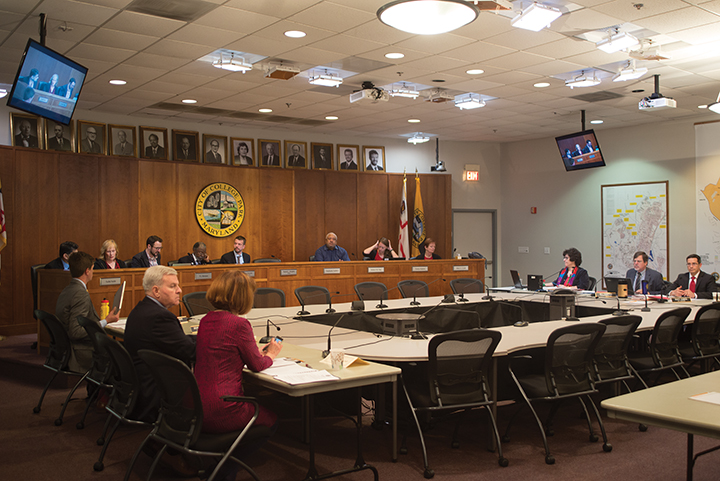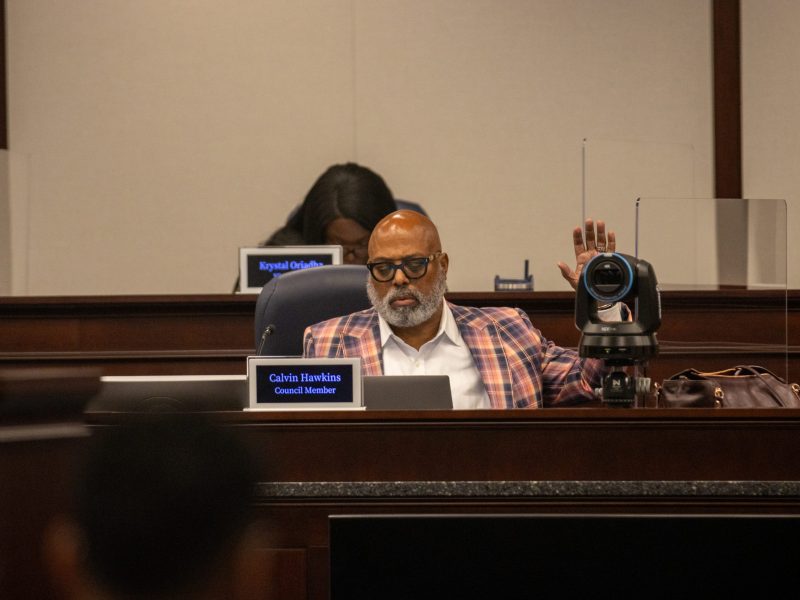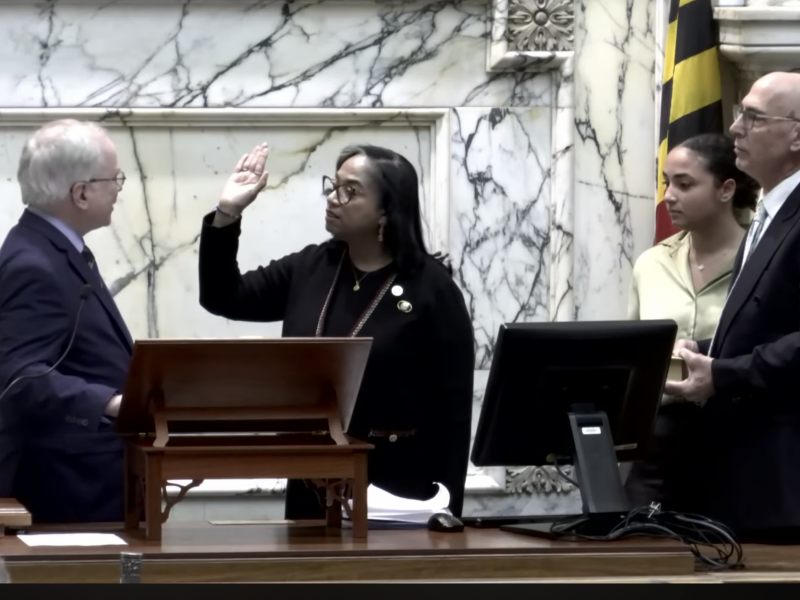At its annual retreat on Jan. 27, the College Park City Council decided that this year it will prioritize considerations to amend the document to extend council members’ term length from two years to four years and establish four at-large seats.
Having elections every two years creates a lot of turnover and a lack of continuity between council terms, Mayor Patrick Wojahn said, adding that this uncertainty makes it difficult to pursue long-term projects. District 2 Councilman P.J. Brennan added that extending the term length would mean less time would have to be spent educating new council members and would keep the council’s direction more consistent.
“It’s about having an efficient and effective government that serves the population,” Brennan said.
[Read more: College Park City Council says 6-vote requirement to amend city charter violates state law]
Adding four at-large seats to the council would make sure there are more officials who represent the entire city rather than just one district, Brennan said.
“Since one of our goals is to be ‘One College Park,’ we want members of our council to think across district lines and to think about the city as a whole,” Brennan said, “not just what they want for their particular district.”
During the five-hour retreat in council chambers, the body also selected the top three items that had previously been scheduled for future council meetings or worksessions, Brennan said. Changing the structure of the government was identified as a top concern for the council this year, he said.
Mihir Khetarpal, the University of Maryland Student Government Association’s director of governmental affairs, said holding elections less frequently would result in less engagement with the city’s student population. A student who graduates in four years would only experience one election in College Park, the senior economics and government and politics major said.
More pressing issues, such as implementing no-excuse absentee voting, should be focused on instead of changing the council terms and makeup, Khetarpal said.
“I don’t necessarily see the problem that they’re trying to solve by changing it from two to four years,” he said.
District 4 Councilwoman Dustyn Kujawa first proposed extending term length and adding at-large seats in August 2017. A six-member ad-hoc subcommittee — made up of Wojahn, Kujawa, former District 1 Councilwoman Christine Nagle, former District 4 Councilwoman Mary Cook and SGA City Affairs Student Liaison Chris Keosian — was formed to further look into the issue, District 1 Councilman Fazlul Kabir said, but nothing came out of it.
But now, reaching a conclusion is time-sensitive, Brennan said, because the city is considering redistricting due to changing population growth, which stems from new housing developments. In 1991, the number of districts in College Park was reduced from eight to four.
[Read more: College Park City Council unanimously votes to repeal and replace city charter]
At the retreat, the council also agreed to focus on the expansion of the trolley trail in north College Park. Other lower-priority items included improvements to Duvall Field and conducting parking studies.
Amending the city charter to address issues surrounding a previous non-U.S. citizens voting decision will be done separately, Wojahn said.
Last September, the mayor and council voted 4-3 in favor of a charter amendment that would allow non-U.S. citizens to vote in municipal elections, saying the amendment had passed. The council later realized that changes to the city charter require six affirmative votes — a rule introduced last April in another charter amendment — meaning the amendment was not adopted.
Wojahn and the council are considering amending the charter to repeal the supermajority requirement and clarify other aspects of the charter to avoid future confusion.
Identifying council priorities for the year was done largely without resident input, Kabir said, adding that he isn’t aware of any residents asking their representatives to extend term lengths or introduce at-large seats.
“I haven’t seen any huge — or any, actually — outcry or demand from residents,” Kabir said. “This definitely did not come from residents.”
Residents should have the opportunity to tell the council what they think should be a priority for the group to work on, Kabir said, adding that city staff and budget funds are allocated to projects throughout the year based on its priority ranking, which the council decided at the retreat.
When the exploration of the charter amendments comes before the council, there will be opportunity for residents to add their input, Wojahn said.
“There was a desire from the council to explore these — that’s why we set it as a priority for the next year,” Wojahn said.



